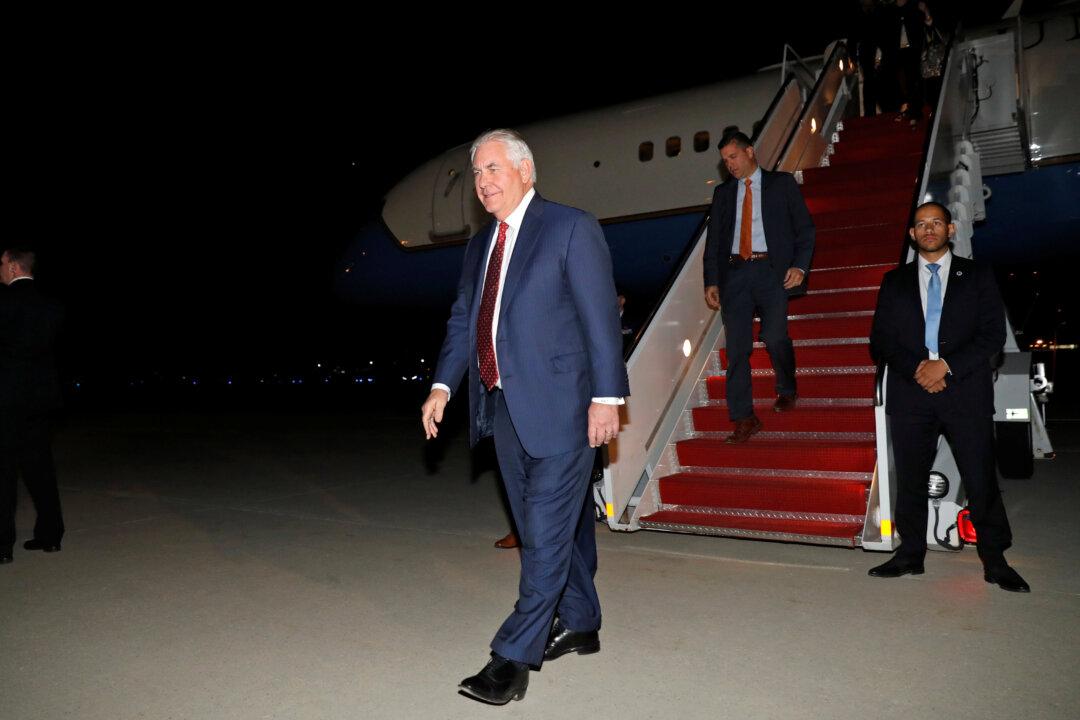Secretary of State Rex Tillerson said on Tuesday that the United States is willing to talk to North Korea whenever the regime is ready.
However, Pyongyang must come to the negotiating table willing to make choices to change course on its nuclear and missile programs, Tillerson said in a speech to a Washington think tank.




